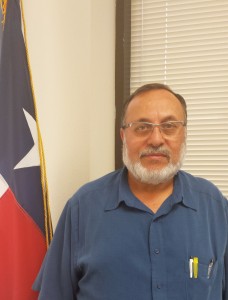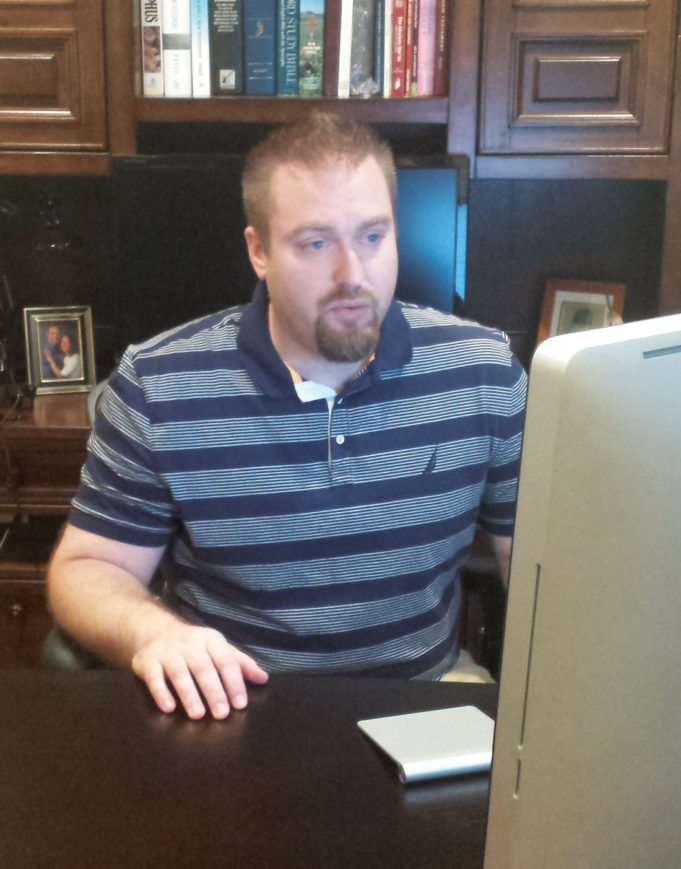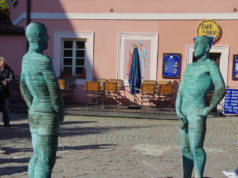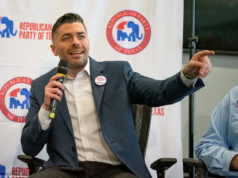Before the Pledge of Allegiance is recited –– or a motion is made or a voice is heard –– some city council meetings in North Texas begin with a prayer.
Dear Lord, what the hell happened to the separation of church and state?
Most cities allow for religious inclusiveness, although the majority of invocations are Christian. By definition, an invocation is the act of inviting the presence of a deity or spirit. That sounds a lot like a prayer. Most speakers –– surprise! –– are local clergy members. Recently, a Muslim imam and a Jewish rabbi have prayed at Fort Worth City Council meetings and will do so again later this year.
Across the United States, religious leaders open city council meetings with an invocation. Tarrant County has kept up the practice for years and does not intend to stop now. In fact, a Muslim devotion opened the Texas House meeting in Austin in 2003 for the first time. And why shouldn’t they allow it? It’s the law.
The U.S. Constitution protects prayer in public meetings as long as no one is excluded or forced to participate. In 2014, two women from Greece, N.Y., challenged the prayers, and the case went all the way to the U.S. Supreme Court. The justices ruled that separation of church and state did not forbid praying, since no one was being forced. Public officials have various ways of scheduling prayers. They just ask people. Or people ask to be asked. As long as everyone is included, it’s all good. Atheists? Come on down! Muslims? We’ll listen to ya!
But sometimes diversity can push a city to its limits, especially when citizens want to end a prayer with “Hail, Satan.” Last week in Scottsdale, Ariz., city officials decided to bar members of the Satanic Temple from leading an upcoming invocation. These devotions, the officials said, are meant to solemnize the meeting, not make a joke out of it, which is what they feared would happen.
City councils trying to be inclusive can still get an earful from angry residents. Some howled last year when Muslim Imam Moujahed Bakhach gave the opening prayer at the Fort Worth Stock Show & Rodeo. Bakhach, who is the owner and director of the Mediation Institute of North Texas, said the prayer was well received by the audience. The next day, online commenters on social media went ballistic.
“I just will choose NOT to go somewhere that embraces a religion that wants me, my family, and my people DEAD,” one post read.

The imam, who has lived in the area for 35 years, was slated to give more prayers but said he declined because he worried the uproar would harm the goodwill surrounding the event.
Despite the negative comments, many Fort Worth people supported Bakhach and apologized on behalf of the angry commenters, Bakhach said. He commended the city of Fort Worth for its support of the Muslim community since the September 11 attacks. In particular, Bakhach praised Mayor Betsy Price for creating an environment where Muslims are better understood in Fort Worth, such as allowing them to pray before public meetings. Bakhach has prayed at Fort Worth City Council meetings and plans to do so again in the near future.
“So it looks like the instruction of the mayor . . . to be inclusive and to invite Muslim clergy, invite Christian and Jewish and others to open the session of the mayor and the city council meeting with a prayer,” Bakhach said.
Local critics question prayer policies occasionally, most recently in Keller and Rowlett. The Supreme Court ruling prompted Zachary Moore to challenge the prayer procedures at Keller City Council meetings. The Keller humanist and atheist, who is a medical writer at Cadence Research and Consulting, had participated in the invocation three times from December 2014 to August 2015 and felt discriminated against. Humanists, rather than looking toward a god or deity, make life decisions based on how they will impact humanity. Moore didn’t appreciate that his humanist invocation was always followed by a Christian prayer. In Moore’s “prayers,” he wished for the best for humanity, but he did not address them to a god. Bear Creek Bible Church Senior Pastor John Salvesen, who gave the Christian prayers after Moore’s speech, schedules the invocations as well.
“I would not be allowed to give an invocation if [Salvesen] did not come after me and mention God, and that’s a problem,” Moore said. “Because then, effectively, what [Salvesen] is doing and by proxy what the city of Keller is doing is requiring certain content in invocations, and that’s a very dangerous path for them in terms of constitutionality.”
Moore reached out to the Freedom from Religion Foundation, and representatives from the 28-year-old national nonprofit issued a letter to Mayor Mark Mathews saying the invocation policy was unfair. He countered that the city charter calls for an invocation before meetings. The mayor’s solution? Two invocations every time. Hallelujah!
Keller council members, Mathews said, define an invocation as a prayer to a deity, something more than a good wish. The city’s charter, Mathews said, was adopted by the citizens of Keller and last amended in 2010.
“We want to continue what we already have the right to do,” Mathews said.
Moore has not prayed at council meetings since last August, Salvesen said, but he will be invited back later this year. Prayer, he continued, is part of the Keller culture and community, and there are no plans to get rid of it. In fact, participation in city invocations has actually increased since Moore claimed the city prayer did not include everyone, Salvesen said.
Members from a variety of denominations have given the invocation in the past, Salvesen said, including a Mormon, Baptist, and Catholic. Because of the lack of religious diversity in Keller, Christianity monopolizes Keller invocations.
In 2010 and 2014 in Rowlett, atheists challenged the invocations, saying their civil rights were violated by the prayers. Metroplex Atheists argued that if city officials insist on scheduling prayers at meetings, the officials should allow everyone, including atheists, to give the invocation. In the prayer policy, licensed clergy from “religious congregations with established presence” in the city are permitted to participate. The atheists say this bars them from participating.
City officials responded by reviewing their policy and consulting with an attorney to make sure it’s fair, said Rowlett Mayor Todd Gottel. The council last amended it in 2010. Rowlett public officials and citizens continue to pray at their meetings, Gottel said, because the practice is neither unconstitutional nor new.












